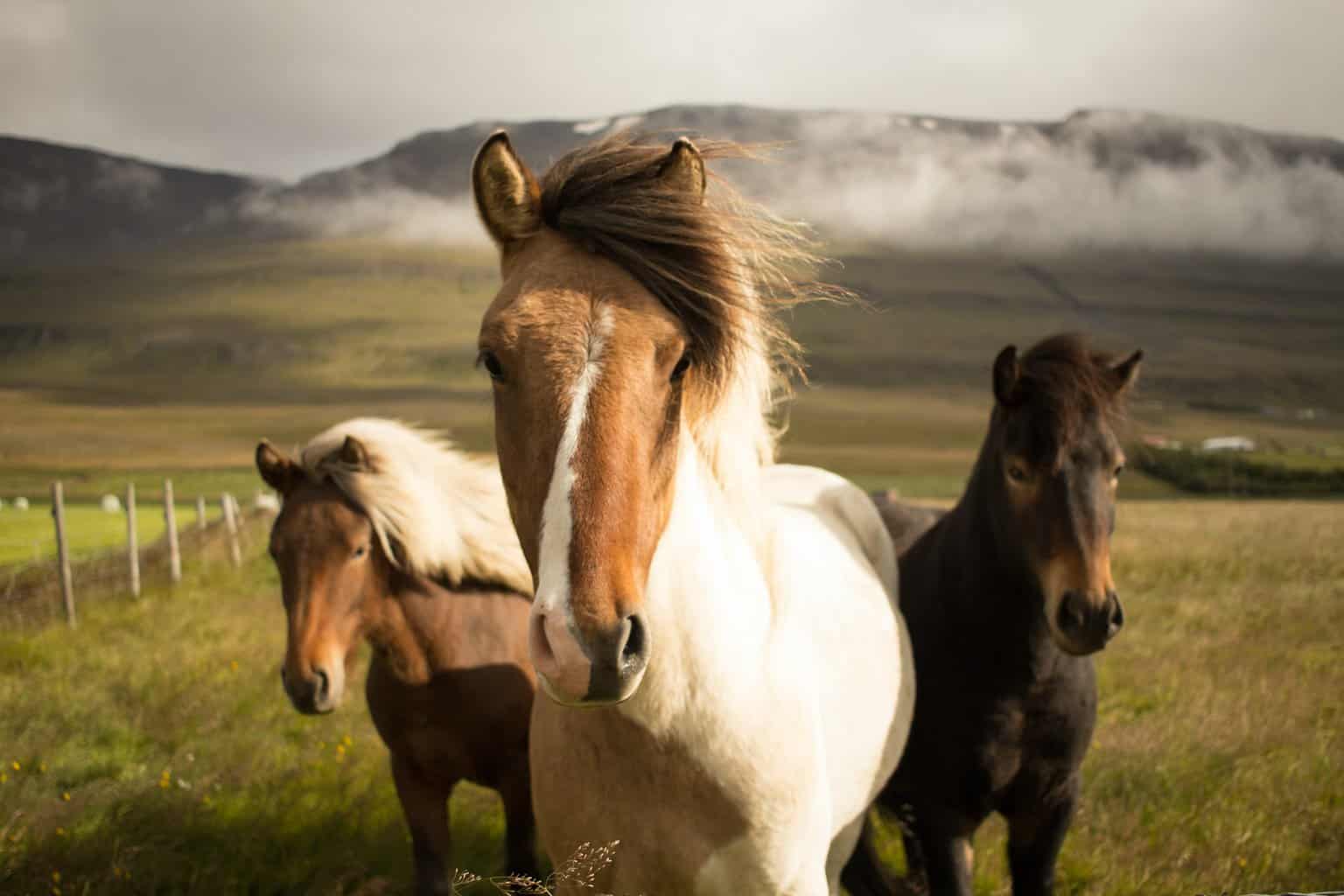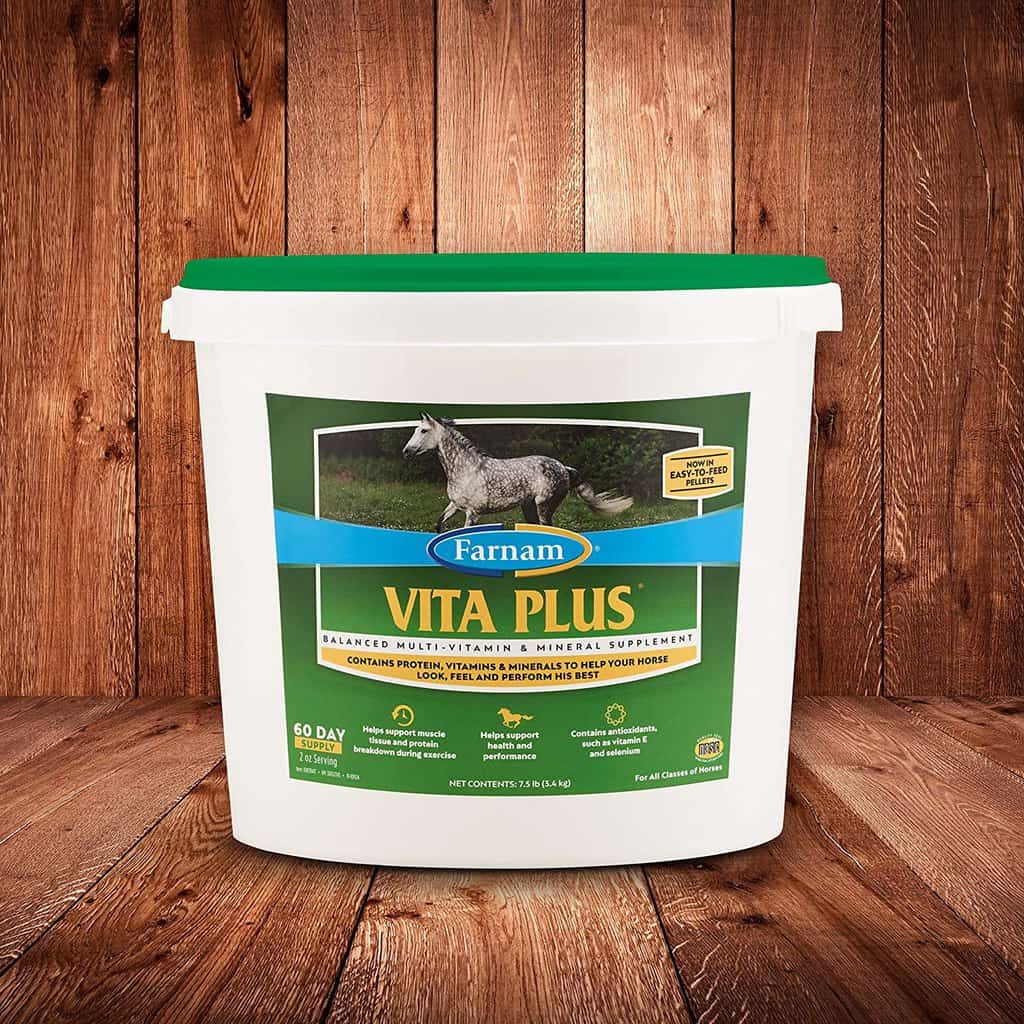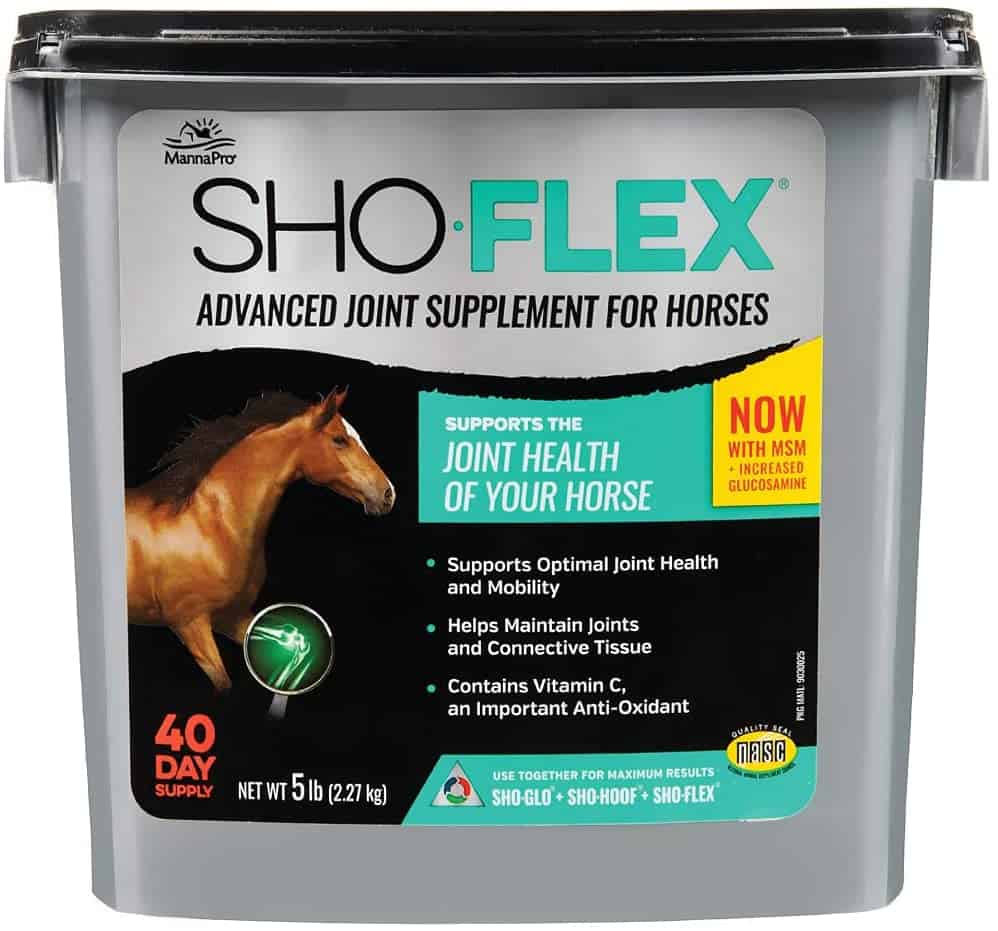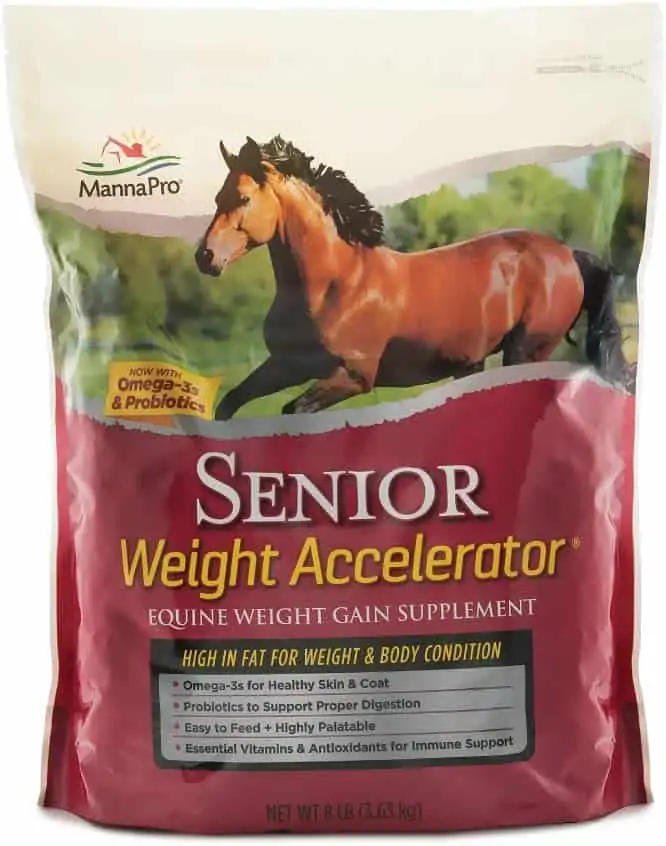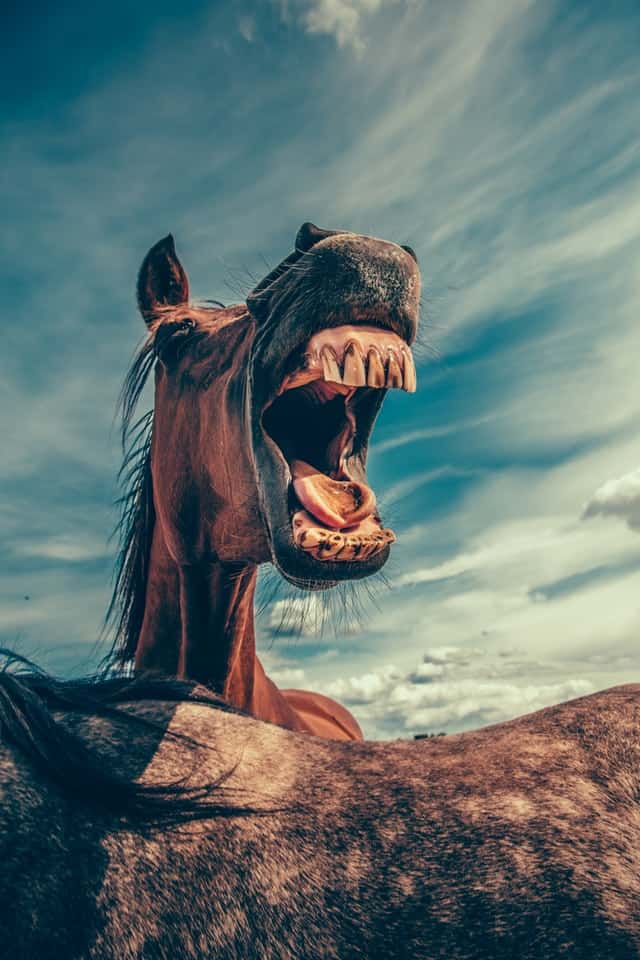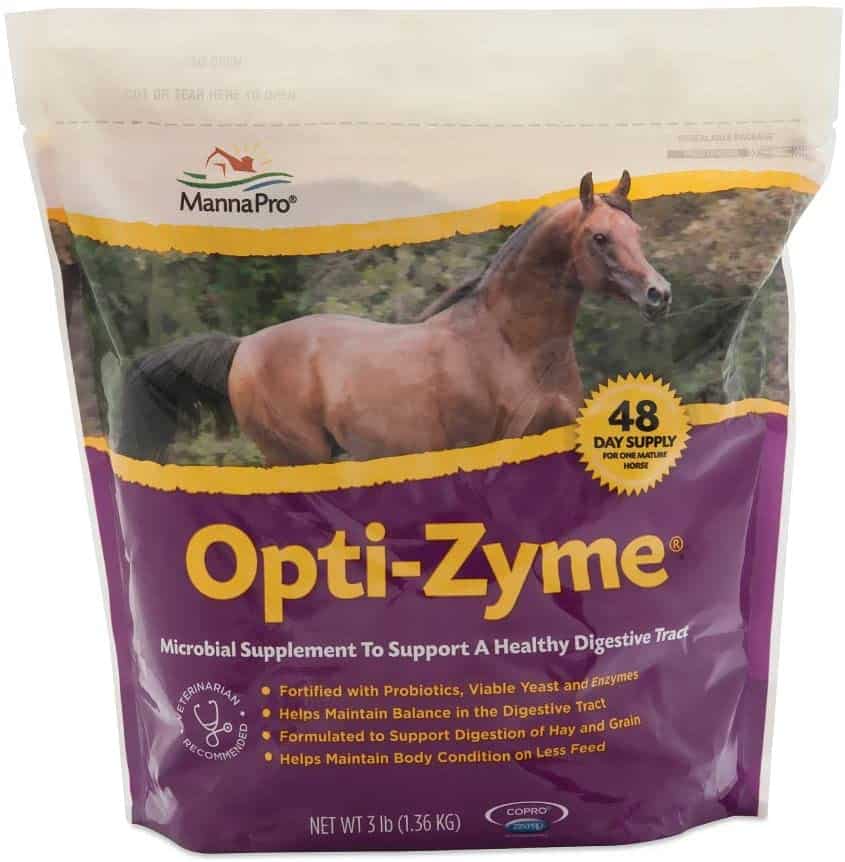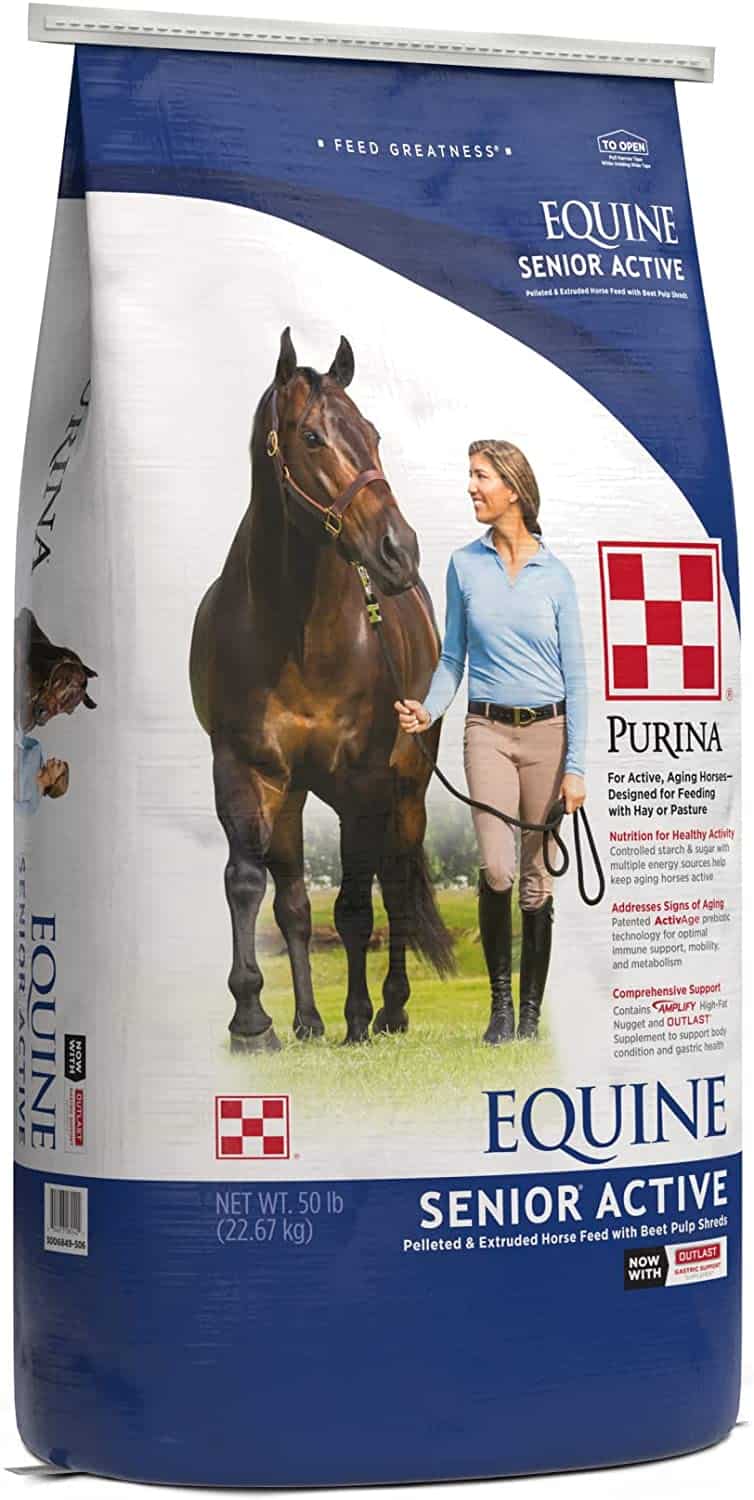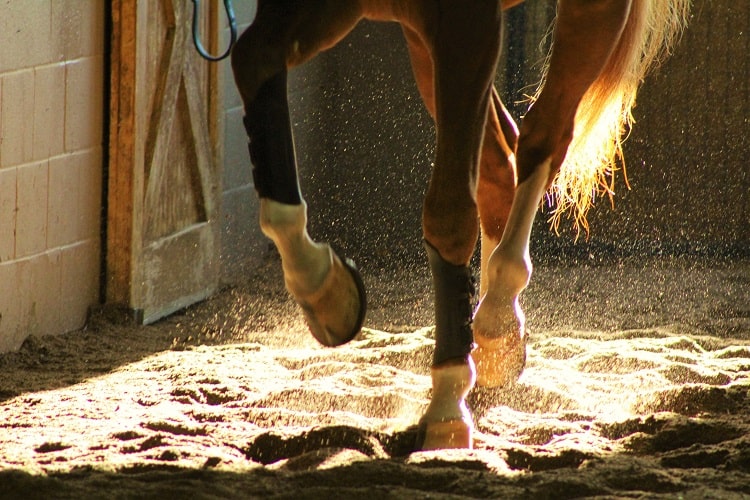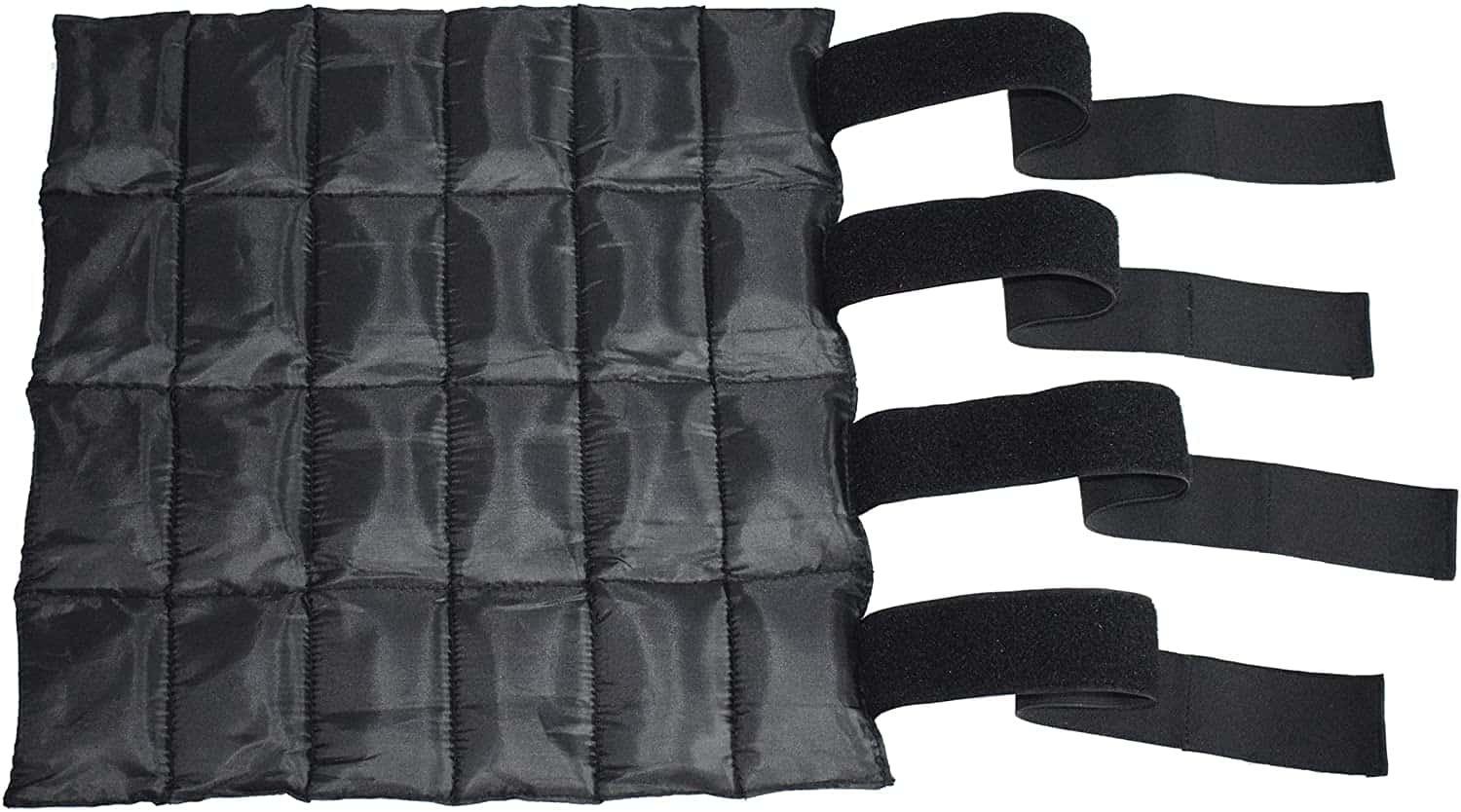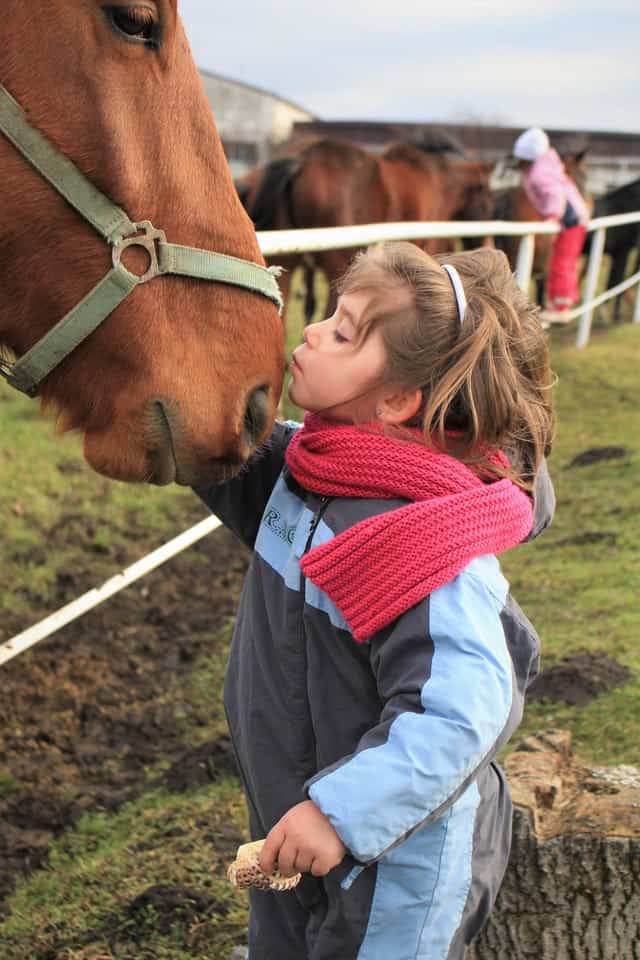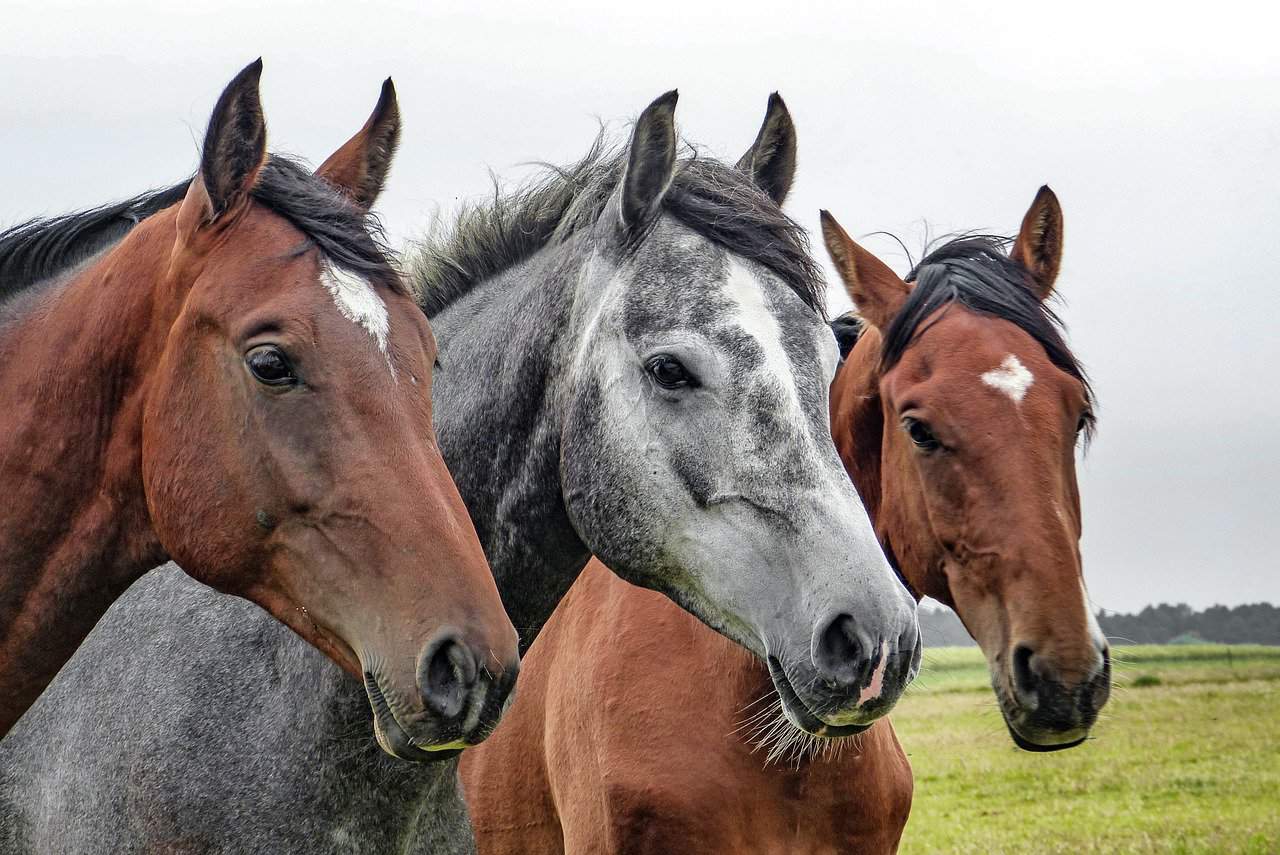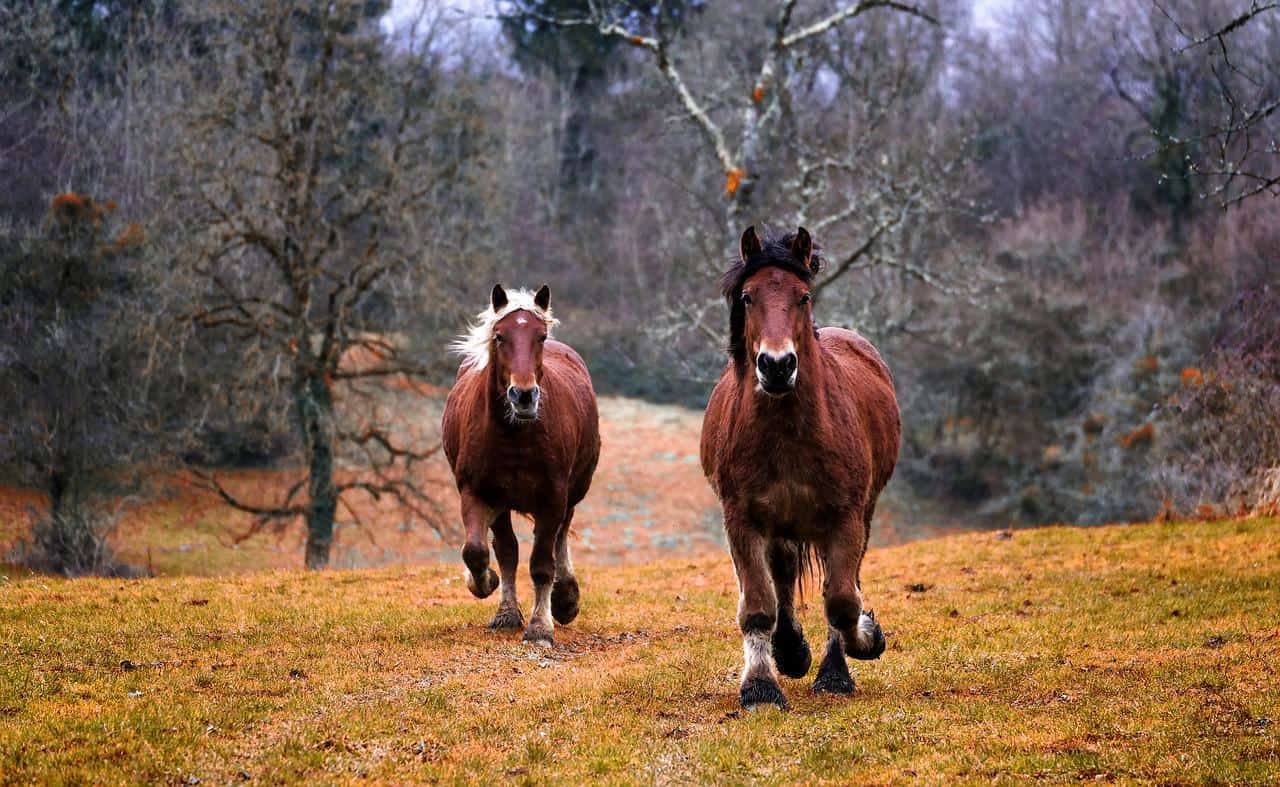- What is a Gaited Horse - October 5, 2023
- What to Look at When Getting a New Farrier - September 21, 2023
- Best Horse Feeds for Older Horses - September 21, 2023
- Bottom Line on Horse Lifespans
- Factors Affecting a Horse’s Age and Health
- Care of the Horse
- Dentistry
- Good Digestion
- Muscle Tone
- Hoof Care
- Joints
- NRTFE Ice Boot for Horses, Horse Ice Pack Leg Wraps Compression Pad
- Flexibility and Mobility
- Oldest Horses According to Breeds
- How to Help Your Horse Live Longer
- FAQs
- The Last Horse
Recently, I had to make a difficult call to one of the older ladies at the barn to tell her that she needed to consider her horse’s failing health and that it was time to let him go. As manager of the facility, it’s my least favorite duty. Yet, the horse was starting to really struggle, so it was time. The owner, much in denial, was understandably upset about the news, and like all of us, she wanted her horse to live forever. Sadly, horses don’t live forever.
One of the grooms, a new kid from the city, asked me how long horses live since the old horse was already deep in his twenties. I realized that people genuinely don’t understand that horses can get really old, much older than the average dog’s age.
I had known the old pony for more than a decade, and for me it was equally heartbreaking to have seen his decline, and now have to tell his owners that it was time for the last walk. Each horse I accompany makes me think of my own horses and that one day it will be their last walks.
Bottom Line on Horse Lifespans
The average horse can reach an age of 20-30 years, barring injury or illness that can cause premature death. When comparing horse years to human years, a horse’s age is not a consistent factor of human years.
While a 1-year-old foal is equivalent to a 6½-year-old child, a 4-year-old horse is equal to a 20½-year-old human. So when a horse is 20 years old, they are the same age as a 60-year-old human. The average rule of thumb is that each horse year is three human years once the horse is an adult.
If a horse reaches their thirties, they are the equivalent age of a 100-year-old human!
When discussing the age a horse can reach, it is important to talk about numbers and consider the factors that contribute to a horse’s ability to live longer and reach a golden age like Old Billy, the world’s oldest recorded horse at 62 years old. Old Billy was born in 1760 and died in 1822. Given the horse age calculation that the Equine Resources International magazine issued, Old Billy would have been over 200 years old!
Of course, there are ways to ensure your horse lives longer such as feeding them a quality feed, investing in vitamin and mineral supplements, and making sure their daily needs are met. Feeding a quality supplement such as Farnam Vita Plus Balanced Multi-Vitamin & Mineral Supplement could have helped Old Billy reach an even older age.
Factors Affecting a Horse’s Age and Health
Any animal has the potential to live long. Age is affected by health, injuries, nutrition, and general well-being. Some animals live longer than others, but horses are generally known to reach their twenties with basic care (if illness doesn’t strike them down).
When looking after a horse, a few factors will influence the horse’s ability to reach a good old age, as Old Billy did.
Genetics of the Horse
The genetics of the horse is hugely important to determine their likely age. A horse with great genetics will also have the best possible body formation. A horse with poor genetics will not have a body that’s built to last.
Infirmity can easily show up in the horse’s body if they have been dealt bad cards in life. Horses with sway backs, poor conformation, defective or malformed teeth, poor digestion, and impaired circulation can be expected not to reach a good age.
However, a horse from a great bloodline with excellent physical attributes, who has been handled correctly since birth and received the best possible care while avoiding catastrophic injuries, can potentially reach Old Billy’s age.
As with other animals, a cross-bred horse where both parents are of great genetic makeup will have a more robust genetic constitution than a purebred horse that is perhaps prone to breed-specific issues. Bad breeding, where the parents are not compatible, will produce a horse with less than ideal genetics and is not likely to reach a high age.
Certain breeds have complementary genetic markers, making for outstanding offspring, while other breeds will have clashing genetics, and their offspring will not be ideally endowed to live long. When you have an eye for horses, you can easily see when a horse results from excellent breeding, average breeding, and poor breeding.
As the horse ages, their genetic defects will take a toll on their bodies, leading to early arthritis, diabetes, poor digestion, weight loss, and early death.
What to Do to Counter Bad Genetics:
If your horse has poor genetics, they will usually have this manifest as bad hooves, poor eyesight, struggling digestion, and lack of vitality.
Supplements such as Manna Pro Sho-Flex Supplement for Horses can help address issues with tendons, healthy bones, poor growth, and flexibility. Frequent farrier work and regular dentistry will also help ensure a better quality of life if your horse is prone to genetic factors such as boxed hooves or parrot mouth.
Pros
- Contains supportive MSM, chondroitin, sulfate, and glucosamine HCL to boost joint health
- Rich source of vitamin C and other antioxidants to help minimize disease and boost immunity
- Each bag lasts 40 days for one horse, making this a good value buy that costs less than $1 a day
Cons
- Should be fed with meals, requiring daily feeding and interaction
- Can become costly, especially if you have more than one horse to feed
Care of the Horse
The care a horse receives will make all the difference in the age they can reach. A great horse with poor care has bleak life prospects, while a poorly horse with excellent care can exceed all expectations in life. It’s up to you as the owner to give your horse the best chances and care in life.
Owning horses is a lifelong commitment, and you should carefully think about whether you can afford the costs of caring for an older horse. Your horse will age, and they will need special care. These care factors will influence whether your horse can live long and well:
Nutrition
Horses have very sensitive nutritional needs. They require large volumes of bulk roughage in the form of quality grass hay. While feeding concentrates can help and will be necessary, especially when a horse gets older, having constant access to hay or grazing is vital to a healthy horse.
Buying only quality hay from reputable dealers guaranteed to be pest and mold-free is ideal. It’s also essential to be mindful that dusty hay is not suitable for your horse’s health. Dusty or moldy hay can easily cause respiratory infections and lung disease.
Ensuring your horse has access to the right mineral salts is another critical factor that some owners forget. A horse’s metabolic processes are dependent on the minerals needed for cell division and growth.
As part of the nutritional contribution to aging well, a horse needs to be on a balanced diet. A diet specially tailored for your horse by an equine nutritionist is best. However, the basics also need to be met. Here are a few basic rules to stick to:
- Older horses will require higher protein meals (14-16% protein compared to 12% for younger horses).
- Feeding smaller meals several times per day (four times at least) will be better for an older horse.
- Never over-feed an older horse since colic is a constant threat.
- Ensure the older horse receives supplements to maintain their health; provide added omega oils, calcium, and trace minerals.
- Wet concentrate for older horses to help with digestion and palatability.
- Providing probiotics as a supplement is essential for good digestion and nutritional health.
- Feed older horses regularly, never skipping a meal.
What to Do to Help an Older Horse Stay Well-Fed:
As horses age, their gut health becomes compromised. One of the main problems with older horses is that they lose weight rapidly. Using a weight gain supplement like Manna Pro Weight Accelerator for Senior Horses can help keep them in good weight with covered ribs and hips.
Pros
- Rich in nutritional fats and oils such as omega 3
- Contains biotin for healthy hoof growth and joint health
- Formulated with nine probiotic strains to help boost digestive enzymes
- Increased palatability to encourage older horse that are off their feed
Cons
- Improvement is a long term endeavor with some horses only picking up weight months later
Dentistry
Many horse owners still don’t believe that quality equine dentistry is needed to help a horse age well. Most owners will only have their horses receive a hand rasp from their farrier if they have problems accepting the bit. However, the horse’s mastication process (how they chew and wet the food with their saliva) is equally important to their ability to digest food and the amount of food you feed.
A horse with poor teeth will not be able to grind and masticate their food fully. When the horse chews, their spit mixes with the food, and this spit contains essential digestive enzymes, which help the horse digest their food. A horse that chews badly will eat poorly and age worse.
Horses under the age of 10 should see their equine dentist at least every six months as this will help the dentist fix any genetic problems such as waves, hooks, ramps, or occlusions that can seriously impact the horse in their later life. When the horse is older than 10 years old, they should visit the dentist once a year to maintain their adult mouth and check for any tooth damage that requires repairing or removal.
Old Billy was quite phenomenal in that he didn’t receive all of today’s modern care, yet we have to wonder if he would have lived longer or had a better quality of life if he had received regular dental checkups.
What to Do to Maintain Your Horse’s Teeth
Be sure to use a qualified horse dentist, preferably one who uses power tools to maintain your horse’s teeth. The average costs are as follow:
- Horses up to six years old: $100-$150 per year (two visits)
- Horses six years old to 12 years old: $125-$175 (two visits up to 10 years old)
- Horses 13 years+ :$125-$250 per year (one annual visit)
Horses with severe dental issues may cost upwards of $250 if they had no previous dentistry done. It is in your horse and your interests to have your horse floated and balanced regularly and any problems dealt with as soon as possible to avoid excessive costs.
Good Digestion
While you can feed bucket loads of concentrate feeds, you will be wasting your money if your horse has poor digestion. A horse will only digest food if their gut can do so effectively. Therefore, you need to ensure your horse has a healthy gut.
To protect your horse’s gut health, feed them appropriate foods. Avoid sugar-rich foods, and keep treats such as carrots and apples to the minimum. Sugar isn’t good for the microbial balance of the horse’s gut.
Deworm your horse as needed, but take care not to overdo it either. Having your vet do a fecal count of your horse’s droppings before deworming can help you administer dewormer when your horse needs it. While worms are harmful to your horse’s gut health, the chemicals in dewormers aren’t great either.
What to Do to Ensure Your Horse Has a Healthy Gut:
Feeding a probiotic supplement will help your horse’s gut stay aligned with the way it is supposed to work. Because we feed concentrated feeds that are rich in sugars (and have added molasses), our horses’ gut balance is often out of alignment.
You can feed a microbial supplement like Manna Pro Corp 1000082 Opti-Zyme Microbial Digestive Supplement for Horse.
Pros
- Promotes healthy digestion, especially in older horses
- Highly palatable, so easy to feed
- Small quantity fed daily as part of regular meals, making it economical
- Helps poor horses obtain full nutrition from their feed, aiding in weight gain
Cons
- Can be hard to order if you live in remote places, and costly at only three pounds per bag
Muscle Tone
A horse has a large body. Some can weigh in at well over a thousand pounds, and their body requires a particular physique to help keep everything balanced and remain pain-free. While we all know that a topline is vital to a ridden horse, we sometimes forget that even older horses need to maintain their muscle tone.
When a horse has well-developed muscles along their ribcage, back, legs, and neck, they are better able to carry themselves. Muscle mass will also protect a horse’s body from impact during kicks, bumps, or falls.
You don’t have to lunge your 20-year-old mare for the first time because you now want to build a top line. Muscle tone is something you work on when your horse is younger, and then you maintain it when your horse is older.
What to Do to Ensure Your Horse Develops and Maintains Good Muscle Tone:
Firstly, feed a high protein feed to help build muscles. The tissue of the muscles need protein to grow, and it needs healthy fats like omega 3 and vitamin E.
Purina | Equine Senior Active Horse Feed is an appropriate choice as it is dense in micronized and extruded proteins that are easily digested by the horse. With the addition of beet pulp, the feed is great for aging digestive tracts.
Pros
- Contains a scientifically formulated prebiotic
- Rich in fatty acids from rice bran, flax seeds, and vegetable oils
- Ideal for senior with carbohydrate sensitivity such as colic prone horses
Cons
- Comes in a small size bag, making it a costly feed if you have more than one senior horse to care for daily
Hoof Care
Trim horse hooves every six to eight weeks, and if your horse is shod, they should wear a set of shoes for eight weeks at the most. Regular farrier work will help maintain your horse’s balance, legs, and joint integrity. Corrective farrier work can help accommodate any conformational defects and prevent excessive wear and tear on the horse’s body. Keeping a horse sound is important to prevent their bodies from showing strain in other areas.
What to Do to Ensure Your Horse Maintains Healthy Hooves:
Most nutritional supplements will support your horse’s hooves and encourage healthy growth. A clever hack that works well for older horses to maintain their hoof wall and put a little extra weight on them is to add some regular unflavored gelatin to their feed with loads of water. The gelatin is a natural collagen based product, which will boost healthy cell growth in the hooves, joints, and connective tissues.
Joints
Joint health is vital for a horse to age well. If a horse is prone to joint issues such as arthritis, capped hocks, wind gulls, sidebone, ringbone, and calcification of the joints, their ability to move will be compromised. In addition, that horse will have pain their whole life, which is terrible for the entire body, but especially their heart.
A horse that is in pain will struggle with eating, their circulation will deteriorate, and they will begin to lose weight. The result could be a lower immunity and vulnerability to illness and disease.
What to Do to Ensure Your Horse Maintains Healthy Joints:
In addition to feeding a supplement rich in collagen, glucosamine, and chondroitin you can also use compression or pillow wraps to help soothe your older horse’s legs. Starting with these wraps when the horse is still young and actively competing is a great way to protect the long term integrity of the horse’s joints and legs.
NRTFE Ice Boot for Horses, Horse Ice Pack Leg Wraps Compression Pad
Pros
- Excellent preventative for leg inflammation
- Cooling action helps reduce swelling
- Easy to fit
- Can be frozen for extra cooling, while not becoming hard
Cons
- Be sure to buy a reputable brand to avoid issues with the gel-cells breaking
Flexibility and Mobility
Because horses are such large animals, their digestive tract is really long. With over 180 meters making up their gut, a horse requires movement to help stimulate the movement of food down their intestines. When there is a lack of activity, a horse can quickly become blocked, filled with gas, and lose their gut biome balance.
Keeping an older horse flexible enough to reach the ground and graze without strain will help them forage better while improving their ability to move around. Since horses prefer to conserve energy, they tend to move around very little when they don’t need to. Therefore, it is up to the horse owner to ensure their horses get enough exercise (ridden or non-ridden) to improve their mobility and gut health.
What to Do to Ensure Your Horse Maintains Healthy Flexibility and Mobility:
When it comes to mobility and being relatively flexible, it comes down to using it or losing it—for horses and for people. There are a few supplements that help, and these are given for good joint health too. However, it all comes down to a few golden rules for your horse:
- Give them space to move—horses were born to move and when they stand still, they freeze up
- Don’t work them over hard ground continuously
- Avoid and prevent concussion with a good set of shoes (for the horse)
- Regular farrier work will ensure their hooves allow them to move correctly to avoid injuries
- When riding a senior horse, remember they need more time to warm up aging joints and muscles
- Work gently with the senior horse to avoid injuries and sprains
- On good days, work them; on bad days, rest them
Injuries Received and Treatment
Sadly, many horses don’t reach old age due to injuries they sustain. Whether these injuries are immediately fatal, require euthanasia, or shorten the horse’s life because of complications, horses are injury-prone. It is rare to find a horse that automatically looks after themselves to the point of never having so much as a papercut.
Most horses will suffer barbed wire cuts, kicks, hematomas, bruises, and impact-related damage to joints, legs, and their backs. It’s up to the horse owner to minimize the potential for a horse to injure themselves or be injured if you want the horse to live out their life in full.
Horses kept in paddocks with potentially harmful objects such as old farm implements, damaged barbed wire fences, and aggressive horses (or other animals) may injure themselves more frequently. Keeping a horse in a pasture with massive holes can increase their risk of stepping in one mid-canter and breaking a leg.
Since injuries are par for the course with horses, it’s also the owner’s responsibility to ensure their horse is monitored for injuries daily. If an injury occurs, the horse needs to be treated correctly and immediately for this injury. A minor injury can become severe due to infection from not being treated quickly enough.
Basic Psychological Needs
No animal thrives in a stressful environment, and if your horse is worried and never really relaxes, they may be more injury-prone. Stress weakens the immune system, making the horse more vulnerable to infections and disease.
When a horse feels unsure and becomes stressed, it will pressure their heart and lungs. It is, therefore, up to the horse owner to ensure their horse’s psychological needs for safety, companionship, developmental thinking, and lowering of stress are met.
Balanced Treatment and Routine
Horses rely on consistent treatment, fair handling, and peaceful routines to help them get through their day and feel safe. If people treat the horse differently than you do, it can lead to further stress and insecurity. A lack of routine also upsets the horse.
To reach a long life, a horse needs predictable and dependable routines that help them feel secure and sense when they are doing right. Insecurity can make a horse do foolish things such as bolt into traffic, jump a fence, hook their legs, or run into objects. Ensuring the horse is secure in their handling and routines will help the horse be mentally settled, healthier, and safer.
Oldest Horses According to Breeds
You may wonder which horse breeds are known for longevity and what characteristics are responsible for their excellent age. Smaller horse breeds tend to live longest, partially due to the reduced load on their joints.
Here are some top breeds and their maximum ages reached.
Quarter Horses
Calypso, the oldest quarter horse, was also Australia’s most senior horse and died in 2020 at 50.
Icelandic Horses
The hardy ponies native to Iceland commonly reach an average age of 30-40 years, with the oldest Icelandic pony being a mare called Thulla, who reached the age of 57.
Shetland Ponies
Shetland ponies are renowned for easily reaching upward of 30 years in age, but the record is held by a Shetland pony called Bamboo, who turned 50 years old in 2021.
Arabians
A Polish Arabian horse called Magic is the oldest recorded Arabian at 46 years.
Appaloosas
The oldest Appaloosa is called Kemo’s Fire Shadow, who reached the age of 39.
Thoroughbreds
The oldest thoroughbred is a horse called Tango Duke, who died at the age of 42.
Cross-Breeds
The oldest horse of this century and also a cross-breed mix of thoroughbred with Irish draught horse is Shayne, who died at 51 years old.
How to Help Your Horse Live Longer
Like most owners, I want my horses to live longer and reach an older age. More importantly, I want my horses to live a comfortable and healthy life. I currently have a two-year-old who’s a rising two-year-old, two teens aged 13 and 14, and I also have an older horse nearing 20.
Each has their own unique feeding and care requirements I need to follow to help keep them in optimal health. New owners often ask what I do to keep them healthy and why my horses don’t look like “old” horses. Here’s my checklist that I share, and it works:
Take Care of the Basics
Hay and Feed
I feed each horse appropriately to their nutritional needs, and I feed daily, never skipping a day. Providing ad-lib quality hay is important, but I like to feed medium-protein-level hay instead of high-protein legume hay that can cause organ failure if fed in copious amounts.
Vet Help and Health
I work with the vet to keep my vaccinations up to date and stay informed of viral alerts in the area. Seasonally, I use fly repellents to keep bugs away, as these can transmit viruses and bacterial infections.
When my horses have an injury, I always ask myself whether I have the skill, knowledge, or tools to treat the injury correctly. If not, I instantly call my vet for assistance. Because of the close relationship I’ve built with my vet, she often gives me discounts and cares about my horses.
Farriery and Dentistry
Farriers tend to my horses’ hooves according to a schedule. Never “tell” your farrier when it suits you to have them trim your horse’s hooves. Like doctors, farriers have several clients, and they can’t jump when you snap your fingers. Instead, place your horse on a schedule with your farrier and stick to it as much as possible.
When your horse is old enough for dentistry, you should immediately start having their teeth done by an excellent equine dentist. Effectively chewing will help your horse have a good gut biome. With good digestion, your horse will age well.
Tend to the Daily
Your horse will need exercise and good muscle maintenance. Be sure to keep your horse active and help them maintain a healthy body with daily exercise, whether lunging, riding, leading, or at liberty.
Ensure your horse has good pasture companions that won’t hurt them or stress them out. Loneliness can negatively affect your horse’s appetite and health. Even if you can’t afford another horse, you can provide them with a companion such as a peaceful dog, sheep, or even a pig to hang out with. Remember, you can’t physically be there for your horse all day, so they need a go-to buddy to help keep them sane.
FAQs
Answer: The oldest recorded age a horse reached was 62, as recorded by the Guinness Book of World Records for a cross-breed horse called Old Billy.
Answer: Horses can be ridden into their senior years if it is done with careful consideration of the horse’s ability, health, and rider weight. Exercise is good for horses, especially for senior horses, and many senior horses enjoy a gentle hack out until they are 20-30 years old. If their health holds up, a horse can be ridden up till their mid to late thirties.
Answer: Large breed horses place more strain on their joints and organs due to their size and weight. The failure of joints or organs can hasten their death and lead to a shorter lifespan. Small breed ponies generally tend to live longer as they weigh less and place less strain on their bodies. As a result, their general health is better than large horses’.
The Last Horse
I hope my youngster will reach a great age since I am really providing every need she has. I know she is well fed, protected, stimulated by good company, and gets enough exercise. Her hooves and teeth are kept in the best possible condition, and she has daily care to check for injuries or illness.
Who knows, perhaps she will grow even older than Old Billy?
If you’d like to learn about how to find a boarding facility that will help your horse grow older, you can read my Boarding Guide, or if you want to find a place that can care for your golden oldie better than you perhaps can, you can check out my Guide on Retiring a Horse.


